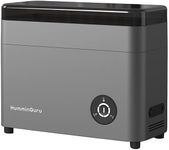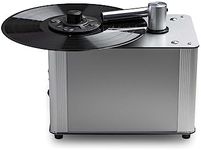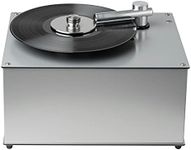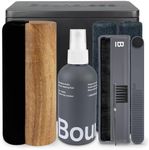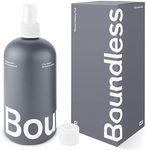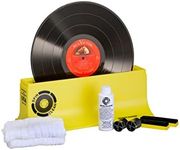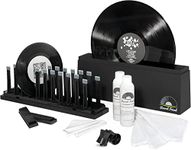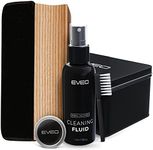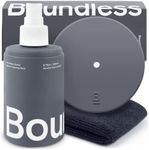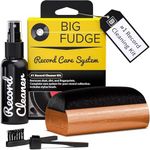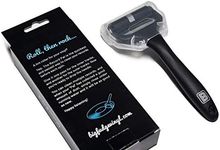Buying Guide for the Best Record Vinyl Cleaners
When it comes to maintaining your vinyl records, choosing the right vinyl cleaner is essential. A good vinyl cleaner will help preserve the sound quality of your records and extend their lifespan. There are various types of vinyl cleaners available, each with different features and specifications. Understanding these key specs will help you make an informed decision and select the best cleaner for your needs.Cleaning MethodThe cleaning method refers to how the vinyl cleaner removes dirt and dust from your records. This is important because different methods can have varying levels of effectiveness and impact on the vinyl. Common methods include manual cleaning with brushes and solutions, vacuum cleaning, and ultrasonic cleaning. Manual cleaning is suitable for light maintenance and is generally more affordable. Vacuum cleaning is more effective at removing deep-seated dirt and is ideal for serious collectors. Ultrasonic cleaning uses high-frequency sound waves to clean records thoroughly and is best for those who want the highest level of cleanliness. Choose a method based on how often you play your records and how much effort you're willing to put into cleaning them.
Cleaning SolutionThe cleaning solution is the liquid used to clean the vinyl surface. This is important because the right solution can effectively remove dirt without damaging the record. Solutions can be alcohol-based, enzyme-based, or distilled water-based. Alcohol-based solutions are effective at removing grease and fingerprints but can be harsh on the vinyl if used excessively. Enzyme-based solutions are gentle and effective at breaking down organic matter, making them suitable for older or more delicate records. Distilled water-based solutions are the safest but may not be as effective on stubborn dirt. Consider the condition of your records and choose a solution that balances effectiveness with safety.
Drying MechanismThe drying mechanism refers to how the cleaner dries the record after cleaning. This is important because improper drying can leave residues or cause warping. Some cleaners use air drying, while others have built-in drying systems like fans or vacuum drying. Air drying is simple but can take longer and may leave water spots. Built-in drying systems are faster and more efficient, ensuring that the record is ready to play immediately after cleaning. If you frequently clean records and need them ready quickly, a cleaner with a built-in drying mechanism is a better choice.
Ease of UseEase of use refers to how user-friendly the vinyl cleaner is. This is important because a complicated cleaner can be frustrating and time-consuming to use. Factors to consider include the setup process, the number of steps involved in cleaning, and the maintenance required. Simple manual cleaners are easy to use but may require more effort. Automated cleaners with fewer steps and minimal maintenance are more convenient but can be more expensive. Choose a cleaner that matches your comfort level and the amount of time you want to spend on cleaning.
PortabilityPortability refers to how easy it is to move and store the vinyl cleaner. This is important if you have limited space or need to transport the cleaner. Portable cleaners are typically smaller and lighter, making them easy to store and carry. However, they may have fewer features compared to larger, stationary cleaners. If you have a dedicated space for cleaning records, a larger cleaner with more features might be suitable. If you need to clean records in different locations or have limited storage space, a portable cleaner is a better option.
